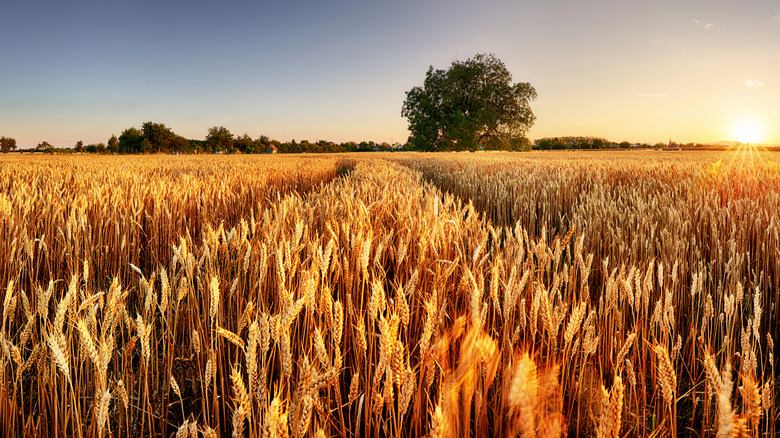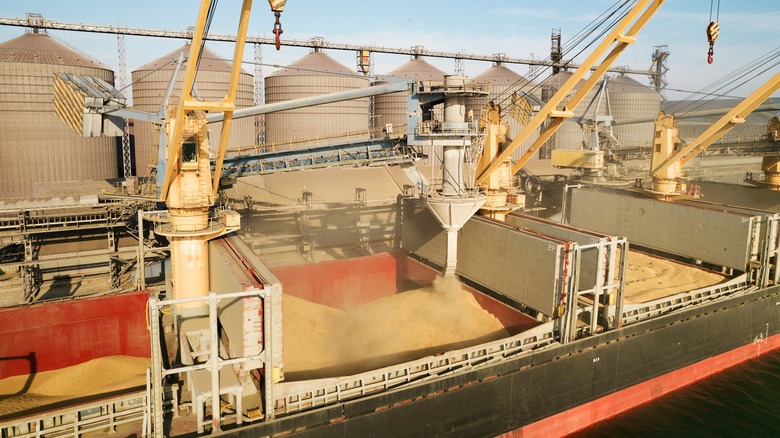The UN's Black Sea Grain Initiative Is Helping Stabilize The World's Food Supply
Food insecurity is a rising crisis, both in the United States and internationally. The World Bank reports that the number of people facing acute food insecurity is expected to rise to 222 million this year. The food crisis has been brought on by a myriad of overlapping issues, with Plan International noting that COVID-19 severely disrupted food supply chains while also destroying livelihoods to the point where more people can no longer afford food even where it is available. All this happened as climate change continues to alter rainfall patterns and increase the number of food-disrupting disasters like hurricanes.
Of all these disruptions to food supplies, one of the most damaging is the Russian invasion of Ukraine. Russia and Ukraine are major suppliers of staple food products like grain and seed oil. Russia's early blockade of Ukraine's ports sent prices skyrocketing, with The Guardian reporting that some developing nations saw food prices rise by over 100%. A global crisis with such horrifying implications sent the United Nations (U.N.) scrambling into action, and the thankful result was the Black Sea Grain Initiative, which was signed in late July.
The Black Sea Grain Initiative is delivering millions of tons of food around the world
Brokered by the U.N. and Turkey, the Black Sea Grain Initiative is a deal with Russia allowing vessels carrying food from Ukraine to pass through the Black Sea region safely. This was critical to relieving the ongoing food crisis as prior to the outbreak of war, Ukraine and Russia combined provided 25% of the world's grain exports (via CNBC). Thankfully, the deal seems to be working, as a new U.N. report shows 8 million metric tons of food have made it out of Ukraine in the last three months, with over 60% of the exported wheat going to the developing nations that need it the most.
Most importantly, reopening the critical Black Sea supply chain has helped bring down food prices, even in places that have not directly received any shipments. After prices maxed out earlier this year, the Food Price Index of global staples fell in July, August, and September as shipments recovered to 60% of the prewar level (via UNCTAD). Still, the world is not out of the woods yet, with the price of grain ticking back up in October as concerns about Russia's willingness to resign the deal after it expires in November persist. While there is hope the deal can remain in place, the uncertainty means food inflation may remain with us for a while.

